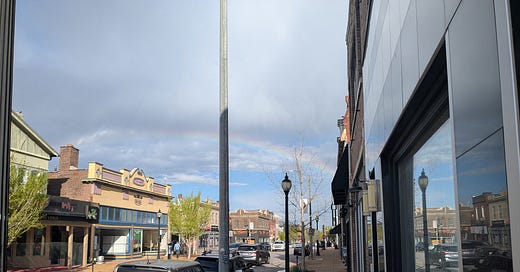Do I have to stop for my neighbor?
can I cross to the other side of the road if I'm really, really tired?
I’ve been catching up on my casework after spending a month almost entirely devoted to my detained client who has now been deported. Catching up meant filing lots of applications. Each one is a spark of hope in the darkness, cases we still think we can win: work authorization and other benefits that might extend at least a window of safety for our clients.
This week, I have also felt myself shrinking away from connection. I don’t want to engage with the person who called the rapid response line about a loved one being detained. I don’t want to talk with a client who has a new issue that they need to discuss. I don’t want to think too deeply about that news story about the woman giving birth while her husband is in a detention center.
There’s power in walking alongside someone. Power to change hearts and minds and next steps. It’s also painful.
A therapist once told our staff that it is better to have compassion than empathy in this line of work. Empathy is generally seen as “superior,” as it involves a closer connection and sharing. But in order to keep doing the work, sometimes we need a little distance, compassion without taking on the emotional labor of empathy.
Sometimes the circumstances tear apart those boundaries. The experience is transformative. And absolutely draining and unsustainable.
For now, I want to file easy work permit renewal applications, clean my desk, write thank you notes. I want to avoid the press of the world, the suffering.
I don’t want to stop for the neighbor on the side of the road. I want to keep walking. How many neighbors do we have to stop for?
Unfortunately for me, the parable didn’t consider the possibility that the priest and Levite who passed by might be emotionally depleted. So I’ll spend this weekend seeking restoration, and next week I’ll go back to the balance beam of compassion and empathy as we walk alongside our neighbors.



